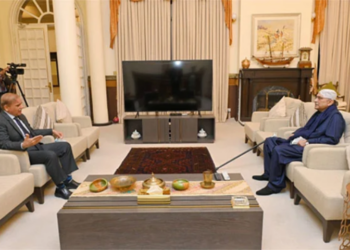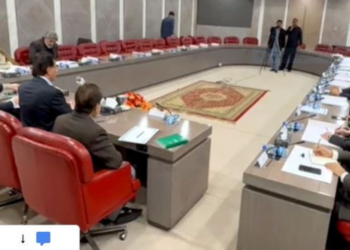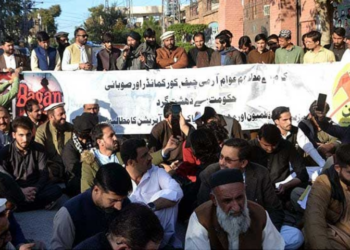Islamabad, December 9, 2024: The Supreme Court (SC) on Monday suspended the Election Commission of Pakistan’s (ECP) verdict disqualifying MNA Adil Bazai for alleged floor crossing, restoring his National Assembly membership until December 12.
A three-member bench of the Supreme Court, led by Justice Syed Mansoor Ali Shah, issued the suspension of the ECP’s decision, which had been based on a reference filed by Pakistan Muslim League-Nawaz (PML-N) President Nawaz Sharif.
Adil Bazai, an independent candidate from NA-262 (Quetta), had initially submitted an affidavit joining the PML-N after his election victory. However, he later aligned himself with the Sunni Ittehad Council, leading to allegations of floor crossing.
In his reference to the ECP, Nawaz Sharif claimed that Bazai’s actions violated constitutional provisions, particularly in relation to votes on the finance bill and constitutional amendments. He urged the ECP to declare Bazai a dissident and disqualify him from his National Assembly seat.
The ECP subsequently ruled against Bazai, citing his alleged breach of constitutional obligations and political allegiance.
During Monday’s proceedings, Bazai’s lawyer argued that the affidavit submitted to the PML-N was fabricated and maintained that his client had never officially joined the party. The lawyer also highlighted Bazai’s consistent denial of PML-N affiliation on social media.
Nawaz Sharif’s lawyer countered these claims, asserting that Bazai’s public and legislative conduct amounted to a violation of party loyalty and constitutional norms. The National Assembly’s website had previously listed Bazai as a member of the PML-N following his submission of the disputed affidavit.
The Supreme Court, in providing interim relief to Bazai, reinstated his membership until further hearings. The court is expected to decide the case’s merits after reviewing evidence and arguments in subsequent proceedings.
This development adds a new layer of complexity to Pakistan’s ongoing political disputes over party allegiance and constitutional adherence, with implications for parliamentary stability and electoral accountability.









